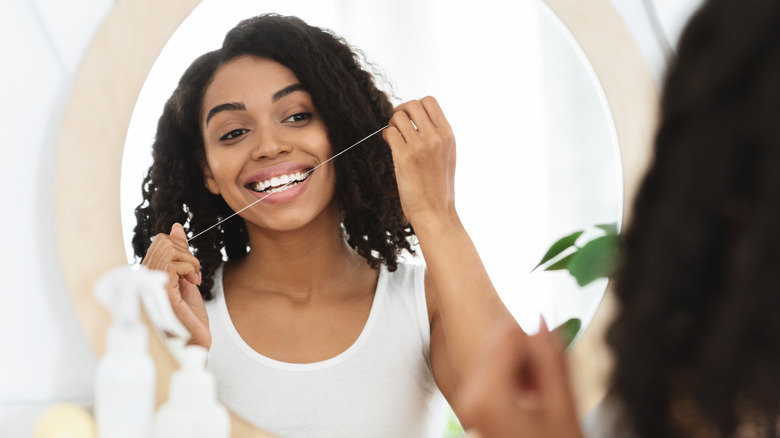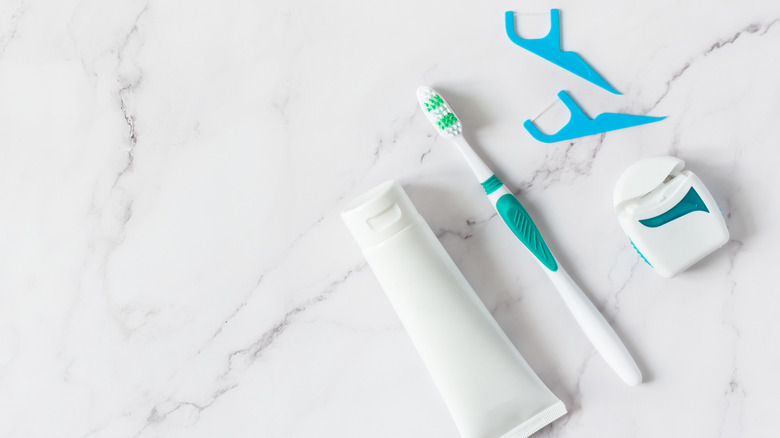Should You Floss Before Or After Brushing Your Teeth?
According to data collected by the National Institute of Dental and Craniofacial Research, 92% of adults ages 20 to 64 have had cavities in their permanent teeth at some point in their lifetime. Suffice it to say, it's likely you've had at least one unpleasant trip to the dentist! But dental cavities aren't the only results of poor oral hygiene. Gum disease, tooth loss, and even oral cancers have also been associated with having poor oral hygiene (via CDC). So what does good oral hygiene entail?
The American Dental Association (ADA) recommends brushing your teeth twice a day with fluoride-containing toothpaste, cleaning between your teeth daily (flossing being the most commonly used method), consuming a healthy diet, and avoiding sugar snacks, as well as maintaining regular visits with your dentist. Interdental cleaning refers to the process of removing food debris and plaque which has nestled between two adjacent teeth (via ADA). This can be done by using traditional flossing techniques or tiny brushes, powered water or air picks/flossers, or even wooden plaque removers. While most people brush their teeth daily, flossing is a whole other story.
Many people fall into a routine when it comes to their dental hygiene. So when is the most effective time to floss? Studies say you should stick to flossing or cleaning between your teeth before you brush.
Floss before you brush
Brushing alone will not protect your teeth from decay, so flossing plays a critical role in cleaning the areas where traditional toothbrushes may have a hard time reaching. A 2015 study compared the effect on plaque and gum inflammation between people who flossed before and those who flossed after brushing their teeth (via Oral Health & Preventative Dentistry). The study determined that people who flossed before brushing their teeth had a statistically significant improvement in their plaque control when compared to those who flossed after brushing. The notion is that flossing dislodges debris and plaque from hard-to-reach areas and subsequent brushing removes them from the oral environment completely, decreasing the chance for further complications.
Similarly, a small randomized control trial published in 2018 also supported these findings when their study determined that flossing first led to decreased interdental and whole plaque formation (via Journal of Periodontology). By using a fluoride toothpaste, the study also found that flossing before brushing helped concentrate more fluoride between the teeth, further decreasing cavity formation.
So if you're a brush your teeth, floss, then wash your face before turning in for the night kind of person, it may be time to tweak your regimen and floss before you brush!


